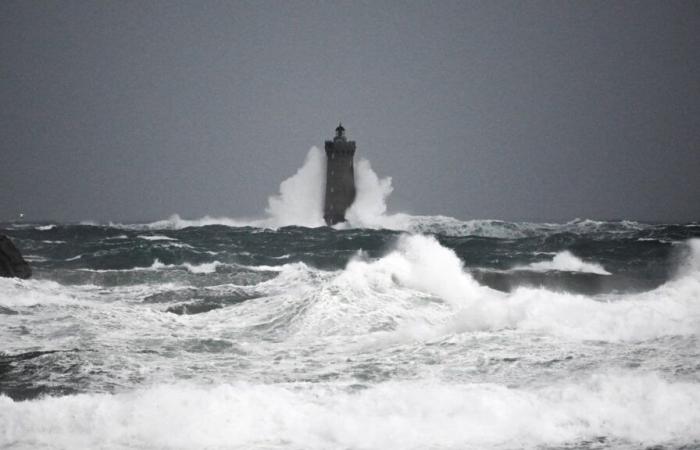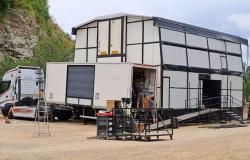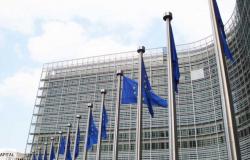Ireland and part of the United Kingdom have been placed on “red alert” this Friday, January 24, as Storm Éowyn approaches, while strong winds are expected on the French coast.
Storm Éowyn sweeps across Ireland. Wind gusts of up to 170km/h were recorded on the west coast of Ireland placed on red alert, as was part of the United Kingdom. “This will be a dangerous, destructive weather event that will cause damage,” warned the head of the emergency coordination group Keith Leonard as Éowyn approached.
In the United Kingdom, the entire country is placed on alert, but the Met Office weather agency has issued a rare red alert for Northern Ireland and parts of southern and central Scotland. This is the first time that such an alert has been issued in Northern Ireland since this system was put in place in 2011.
Connemara is at the forefront with gusts expected at over 170, possibly up to 200 km/h. Beyond the gusts, average winds will approach 120 km/h.
Scotland and the north of England will also be affected in the second half of the day, with waves that could exceed 10 meters. You have to go back at least 15 years to find winds of more than 170 km/h in Ireland. It's the equivalent of a hurricane on the British Isles, far from the tropics.
-Strong winds expected in France
Strong winds are also expected in France, particularly near the English Channel and in the north-west of the country, where gusts of up to 100km/h are expected at the seaside. Morbihan has been placed on orange rain alert. -flood this Friday morning.
On its site, in its 6 a.m. bulletin, Météo France warns of “long-lasting and temporarily sustained rain, particularly this evening”. If this is a usual rainy episode for the season, it requires “particular vigilance, due to saturated soils.”
The rains associated with storm Éowyn will cause significant accumulations by Saturday in Brittany, Hauts-de-France and Normandy. We are expecting up to a month of rain in places and river levels could quickly rise on the banks of the Oise, the Somme and the banks of the Eure which remain under surveillance.
Loïc Rivières with Lucie Valais and AFP






